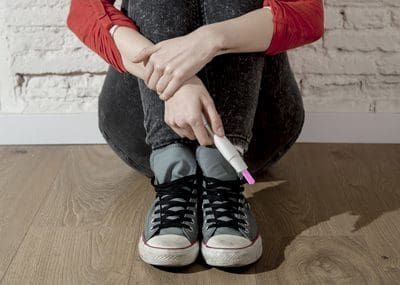 Using illicit drugs and alcohol or abusing prescriptions is harmful for any woman, but more so if she’s pregnant.
Using illicit drugs and alcohol or abusing prescriptions is harmful for any woman, but more so if she’s pregnant.
As the substances travel throughout your bloodstream, they also enter the unborn baby through the umbilical cord and placenta. Saving your life is vital because it will also give your fetus a chance of surviving. While pregnancy addiction treatment may sound like a risky option, it is one that can make the difference between having a healthy baby or one born already addicted.
According to the 2013 National Survey on Drug Use and Health, more than 5 percent of pregnant women aged 15 to 44 were illicit drug users, with the highest percentage between 15 and 17 years old. The outcomes of these specific pregnancies ranged from third trimester bleeding or toxemia, to miscarriage or Sudden Infant Death Syndrome (SIDS). These statistics prove that prenatal substance use is a public health concern linked to various fetal and maternal consequences. As you decide what you should do if you are pregnant and addicted, you also need to take a look at the risks you are creating for yourself and your unborn child.
Effects of Substance Use in Pregnancy
Women in the United States are at a higher risk for developing a substance abuse problem during the ages of 18 to 44, most commonly known as their reproductive years, especially those between 18 and 29 years old. The most popular used substance is nicotine, followed by alcohol, marijuana, and cocaine. However, there has also been an increase in opiate use during pregnancy, such as heroin and pain medications.
The use of illegal drugs or alcohol, or the abuse of prescribed medications, can affect you and your unborn baby in several ways. It can:
- Change the function of the placenta by causing blood vessels to constrict and reduce the supply of nutrients and oxygen to the fetus. This can cause a baby to be born undeveloped and underweight.
- Cause extremely forceful contractions that can indirectly injure the unborn baby by reducing his blood supply. It can also trigger preterm labor and delivery.
- Lower your blood pressure, which can decrease the blood flow to the placenta.
- Cause abnormal development, birth defects, or fetal death before or after birth.
Other effects on the unborn child include:
- Placental abruption
- Premature birth
- Low birth weight
- Miscarriage
- Neonatal Abstinence Syndrome (NAS)
- Low blood sugar
- Bleeding on the brain
- Respiratory difficulties
- Developmental, learning, and behavioral problems
- Fetal Alcohol Syndrome (FAS)
Laws Regarding Substance Abuse During a Pregnancy
Every state has its own policy in place regarding substance abuse as well as drug use during pregnancy, which is a reason why many women deny themselves healthcare during this time for fear of being arrested or facing some other repercussion. Some of the highlights of these laws include:
- Tennessee is the only state that allows assault charges to be filed against a pregnant woman who uses certain drugs, while 24 states and the District of Columbia consider it child abuse and three states say it is grounds for civil commitment.
- A total of 23 states require medical personnel to report suspected drug abuse during a pregnancy, while seven states require healthcare professionals to test for suspected drug use during pregnancy.
- Ten states prohibit publicly funded drug treatment programs from discriminating against women who are pregnant.
- A total of 17 states and the District of Columbia provide pregnant women with priority access to publicly funded drug treatment programs, while 19 states have either funded or created drug treatment programs specifically for pregnant women.
Treating Substance Use in Pregnancy
If you didn’t stop using drugs or alcohol before you were pregnant, it’s never too late. Treatment and support are available. After you admit to yourself that you have a drug or alcohol problem, consider these steps to help you quit and get help:
- Tell a loved one or healthcare provider: Despite the legal ramifications, it’s the right thing to do. The sooner, the better. Consider getting on a government program that will help pay for you and your baby’s care.
- Throw away all drug paraphernalia: Do it now or get a clean friend or loved one to help you. This is necessary to help you quit and stay clean.
- Break ties with drug dealers and suppliers: Battling temptation with drugs and pregnancy issues will be hard enough.
- Surround yourself with love and support: Despite your relationships with family and friends, it’s okay to reach out to them now. Tell them about the pregnancy and your goal of getting clean.
- Enter a rehab program: Enter a recovery program designed specifically for pregnant women.
If you or someone you love is in need of alcohol or drug treatment, contact us anytime at (713) 769-0102. We are here to help.
References
Drug War Facts. Pregnancy. Retrieved June, 2017.
Substance use during pregnancy. US National Library of Medicine. Retrieved June, 2017.
Low birthweight. March of Dimes. Retrieved June, 2017.
Substance Use During Pregnancy. Guttmacher Institute. Retrieved June, 2017.


